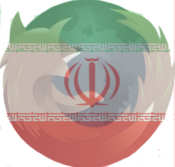 A headline in last Thursday’s Washington Times portentously warned: “EXCLUSIVE: Obama loosens missile technology controls to China.” The sub-head was “Fulfill Your Final Wishes. Nuclear Apocalypse Expected Tomorrow!!” Well, not really, that wasn’t the actual subhead, but it could have been, given the stern warnings in the article about the supposed dangers of the White House’s actions.
A headline in last Thursday’s Washington Times portentously warned: “EXCLUSIVE: Obama loosens missile technology controls to China.” The sub-head was “Fulfill Your Final Wishes. Nuclear Apocalypse Expected Tomorrow!!” Well, not really, that wasn’t the actual subhead, but it could have been, given the stern warnings in the article about the supposed dangers of the White House’s actions.
The reason for the doomsday tone was likely that the Washington Times reporter Bill Gertz wrote a story about something that he didn’t really know anything about. Indeed, he probably would have had a better chance of writing an accurate story if he had reported instead on, say, aspectual features of the verb and the relative position of the locatives in Mandarin Chinese.
Let’s roll the tape:
President Obama recently shifted authority for approving sales to China of missile and space technology from the White House to the Commerce Department — a move critics say will loosen export controls and potentially benefit Chinese missile development.
About the only thing in that sentence that is true is the phrase “critics say,” the rest being sadly misinformed. Items on the Missile Technology Control Regime (“MTCR”) are, depending upon whether the MTCR item is on the United States Munitions List (“USML”) or the Commerce Control List (“CCL”), licensed either by the Department of State’s Directorate of Defense Trade Controls (“DDTC”) or the Department of Commerce’s Bureau of Industry and Security (“BIS”). Items on the USML are licensed by DDTC and are subject to the embargo in section 126.1 of the International Traffic in Arms Regulations (“ITAR”), meaning, of course, that none of these items will be approved for export to the PRC. Items on the CCL are licensed by BIS and those license are considered on a case-by-case basis by BIS. Nothing in the bemoaned action by the Obama administration changed any of that or shifted any licensing authority over MTCR items from State to Commerce
The action that the Washington Times is referring to is a Presidential Determination made on September 29 that delegated to the Commerce Department the President’s obligation to certify to Congress under section 1512 of the National Defense Authorization Act of 1999, 22 U.S.C. § 2778 note, that exports to China of missile and space technology won’t be detrimental to the U.S. space industry or measurably improve the missile or space launch capabilities of the PRC. This is a certification that is made after DDTC or BIS has already approved the export, so the White House action here didn’t shift the authority to approve at all.
Nor did the White House’s action shift, as a practical matter, the obligation over section 1512 certifications from State to Commerce. Given the embargo on shipping USML items to China, the only MTCR items being exported now are items that have already received an export license from BIS. As a result, any section 1512 certifications made by the White House on those exports were undoubtedly made in consultation with the Secretary of Commerce and, no doubt, highly influenced by the findings by BIS and the Secretary of Commerce made in order to justify the export of the MTCR items to China. The White House delegation is really nothing more than a formal delegation of what already had been effectively delegated to Commerce prior to the September 29 Presidential Determination. Suggestions that this change is effective to handing over U.S. nuclear missile technology to Beijing are, simply put, crazy talk, more likely informed by the Washington Times‘s political agenda than by any actual understanding of export law.

 Posted by
Posted by  Category:
Category: 

 At today’s Update Conference in Washington, D.C., Commerce Secretary Gary Locke
At today’s Update Conference in Washington, D.C., Commerce Secretary Gary Locke  Last week an obviously confused reporter at internetnews.com
Last week an obviously confused reporter at internetnews.com  Two weeks ago, we
Two weeks ago, we  In an ambitious display of extraterritorial overreach, the Bureau of Industry and Security (“BIS”) last week
In an ambitious display of extraterritorial overreach, the Bureau of Industry and Security (“BIS”) last week 

